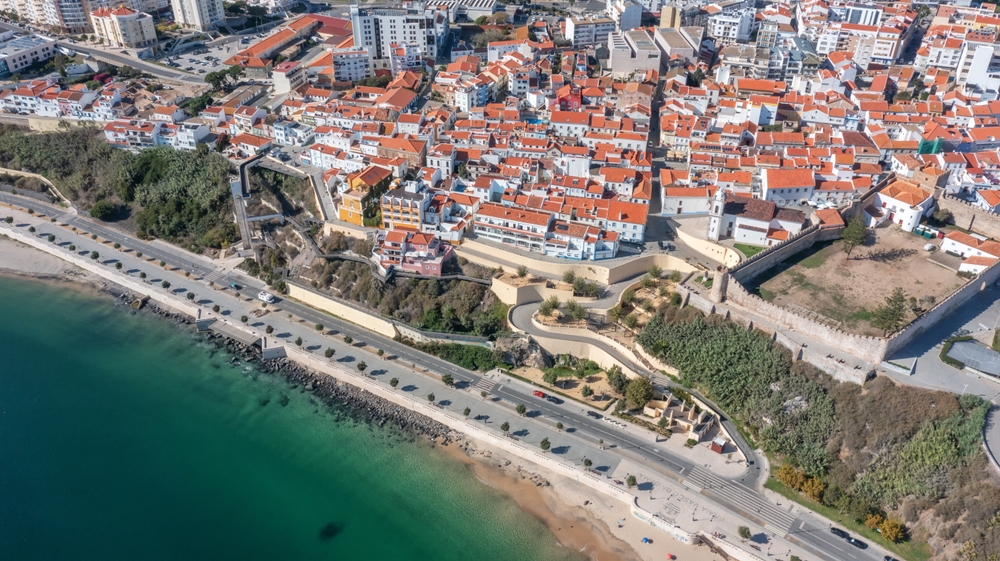
Buying property in Portugal has become an attractive option for many, whether it is expats seeking a peaceful lifestyle, families and entrepreneurs looking for an investment, or digital nomads wanting a sunny escape.
With its beautiful landscapes, welcoming culture, as well as favourable visa and tax offerings, Portugal is highly sought-after by those considering luxury real estate. However, like any major investment, key factors must be considered to ensure the process is smooth and successful.
This guide will explore the do's and don’ts of buying property in Portugal to help you navigate the market confidently.

When buying luxury property in Portugal:
1. Do your research
Understanding the local real estate market is critical before making any property purchase. Different regions in Portugal have varying property prices, regulations, and market dynamics. For instance, buying property in Lisbon, Porto, or the Algarve can be significantly more expensive than in smaller towns or cities like Viana do Castelo or Leiria.
Likewise, rural areas often offer larger properties at lower prices but might lack some of the amenities or services found in cities. Research your preferred locations and assess factors like infrastructure, property prices, and long-term potential for growth.
Portugal Pathways can help you find luxury real estate suited to your needs. Contact us here.
2. Do hire a reputable real estate agent
While it's possible to navigate the market on your own, hiring a licensed and experienced real estate agent in Portugal can save you time, stress, and money. A good agent will have in-depth knowledge of the local market, assist with property viewings, negotiate on your behalf, and ensure that all legal aspects of the transaction are handled properly.
Look for agents with proven track records and positive client feedback, and ensure they are registered with the appropriate Portuguese authorities, including the Associação dos Profissionais e Empresas de Mediação Imobiliária de Portugal (APEMIP).

3. Do get legal representation
Hiring an independent lawyer is one of the most important steps when buying property in Portugal. Although it's not mandatory, having a lawyer to conduct due diligence on the property and check for any legal issues or liens is essential.
Portuguese real estate law can be complex, particularly for foreign buyers. An experienced lawyer will ensure that contracts are fair and that all legal requirements are met, giving you peace of mind throughout the process.
4. Do check for planning permissions and licenses
If you're buying land or planning to renovate a property, ensure that all necessary planning permissions and licenses are in place. Some older properties, particularly those in rural areas, may have unregistered expansions or constructions, which can lead to complications down the line.
Check with the local municipal council (Câmara Municipal) to verify that the property complies with local planning laws.
.jpg)
5. Do explore off-market listings
Some of the most unique and exclusive real estate in Portugal won't be listed on traditional sites. Access to off-market opportunities will often come via personal or professional networks, with these relationships often giving buyers an edge over other interested parties.
When buying luxury property in Portugal:
1. Don’t skip property inspections
Before finalising a purchase, always conduct a thorough property inspection, especially for older properties. It's essential to check for any structural issues, such as dampness, mould, faulty wiring, or plumbing problems.
If you're buying a rural or historic property, additional inspections might be necessary to ensure the building is in good condition. Hiring a professional inspector is highly recommended, as they can identify issues that may not be immediately obvious.

2. Don’t forget about additional costs
When budgeting for your property purchase, don't overlook the additional costs involved. Besides the property’s sale price, buyers must factor in taxes such as the Property Transfer Tax (IMT), Stamp Duty, notary fees, and legal costs. Property taxes in Portugal vary depending on the type of property, its value, and location.
Generally, buyers should expect to pay around 6-8% of the property's value in transaction costs. Having a clear understanding of these expenses will prevent any financial surprises during the process.
3. Don’t rush the process
Buying property in a foreign country can be exciting, but rushing through the process can lead to costly mistakes. Take the time to view several properties, compare prices, and ensure you are fully satisfied with your choice before committing.
In particular, be cautious with off-plan developments or properties that seem “too good to be true,” as they may carry hidden risks. It’s important to stay patient and methodical, ensuring every aspect of the transaction is clear and transparent.
.jpg)
4. Don’t ignore legal and language barriers
Portuguese is the official language of the country, and while many people in Portugal speak English, all legal contracts and documents will be in Portuguese. If you're not fluent, it’s essential to have translations done by professionals to ensure you fully understand what you're signing.
Miscommunication can lead to serious legal complications, so avoid relying solely on verbal agreements or informal arrangements.
5. Don’t forget about long-term planning
Consider the long-term aspects of owning a property in Portugal. Think about how the property will fit into your lifestyle over the next decade or more. Are you buying for investment purposes or as a primary residence? Do you plan to rent it out for part of the year?
Additionally, consider property management services if you don’t intend to live in Portugal full-time. This will ensure your property is well-maintained and secure in your absence.
Interested in buying luxury real estate in Portugal? Contact Portugal Pathways here
About Portugal Pathways
Portugal Pathways has supported hundreds of Golden Visa residency-by-investment applications and provides expert guidance through its professional supply chain network on luxury property, wealth management, and tax optimisation, including post-NHR tax regime planning, as well as private healthcare, IFICI tax incentive applications, money transfers and bespoke relocation solutions to enhance life and investments in Portugal.
Disclaimer: The information on the Portugal Pathways and Portugal Investment Owners Club (P Club for short) websites and in email communications is for general informational purposes only and should not be construed as legal, tax, or financial advice. You should consult and check with a qualified professional advisor before relying on any information provided on this website or in email communications. As it relates to investments in Golden Visas or other wealth management solutions offered by regulated and professional advisors, it is important to note that past performance is no guarantee of future returns. Private equities can be highly illiquid and come with risk and should always be under professional independent advice. Golden Visa investments need to be held for 6 to 7 years to allow for permanent citizenship/passport in the EU.
Secure EU Residency Through Portugal’s Golden Visa By Investment
Gain visa-free travel, family inclusion, and a secure path to EU citizenship
Maximise your wealth, tax status, property & life in Portugal
Talk to our expert team, so that we can offer personalised support to meet your specific needs.





